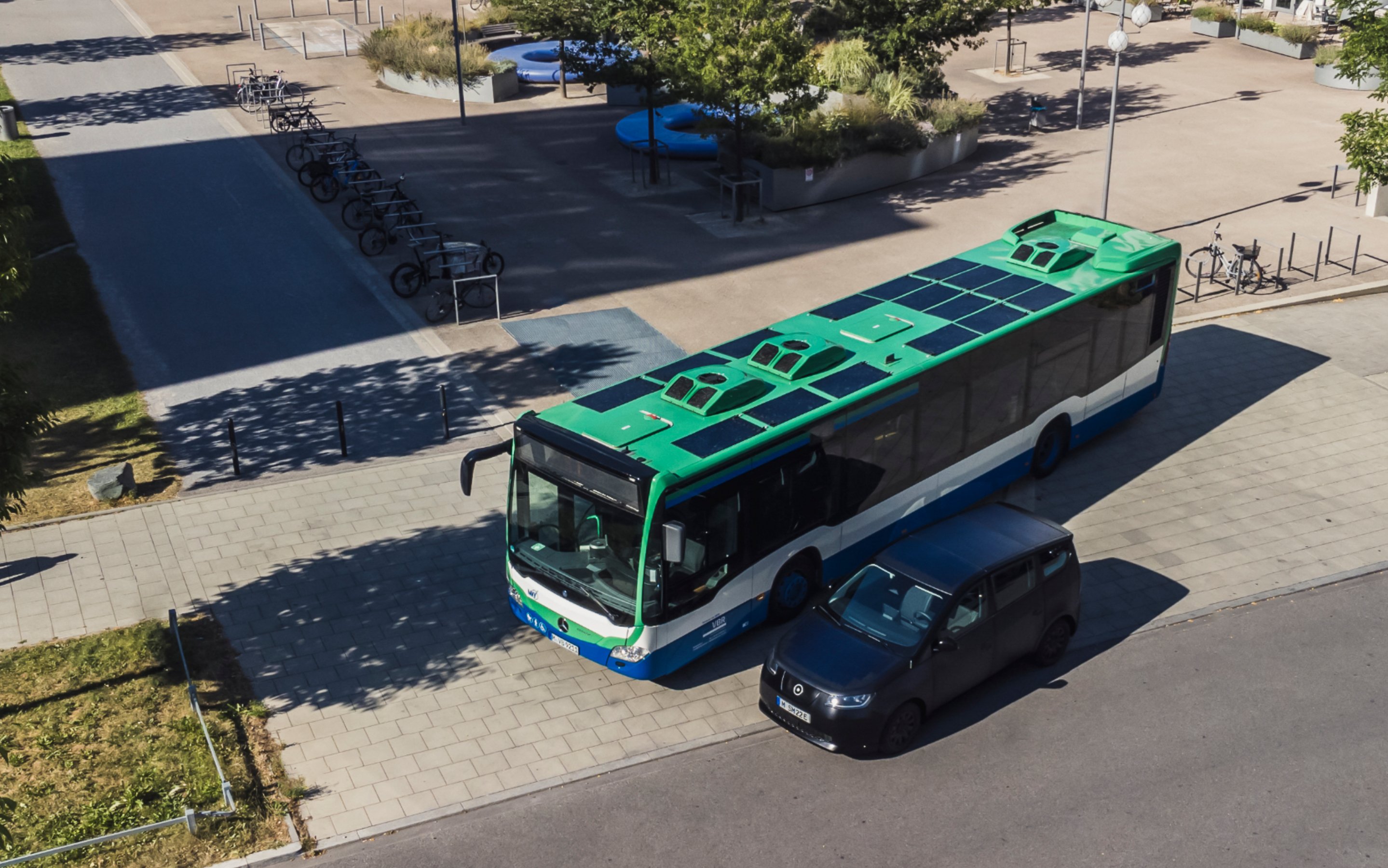2023 was undeniably been a tough year for scaleups in the mobility space. Companies like Clevr shuttles, Volta Trucks, and Uno filed for bankruptcy, while others struggled to bring their products to market or scale their customer base.
What does this mean for 2024?
I had a lot to write about, so I've divided this article into two parts for the sake of reading ease. Stay tuned for part 2 tomorrow.
Despite promised commercial flights, EVTOL delays are inevitable.

Let’s face it: EVTOLs have been a long time coming for very good reasons. It's an industry that has had to design, manufacture, classify, and regulate an entirely new class of aircraft — something that can’t be hurried.
Then there’s the need for route mapping, landing/launching, boarding, refuelling/recharging facilities, and developing a digital network.
Skyports is building a vertiport in time for the 2024 Paris Olympics equipped with tech like biometric identity management, recharging equipment, situational awareness capabilities and weather stations.

But how much will it cost and who will use it?
The launch of Volocopter’s air taxi operations in Singapore has been put on hold indefinitely due to a lack of local partners to share the funding load.
How will this impact Volocopter's plans to launch commercial services in Paris in time for the 2024 Summer Olympics?
The company plans to fly with one passenger and one pilot along two routes, taking short rides from Charles de Gaulle airport to Le Bourget, then to a new landing pad at Austerlitz Paris, and another route from Paris to Sans-Cyr.

In December, Lilium started producing a full-scale airframe of its six-passenger eVTOL vehicle, to be used for the flight test campaign due to begin in late 2024 for the EASA-type certification campaign the company hopes will lead to service entry in 2026.
Also in December, Lufthansa Group and Lilium signed an MoU to establish a collaborative partnership focused on R&D, sustainability, and innovation within the European aviation sector. The company is already partnered with Brazil-based Azul.
Cities 'brake' on micromobility, but e-scooters still roll on

Image: Pony.
It's a fact that e-scooters are the most divisive tech topic I bring up in casual conversations with the average person.
Every conversation includes mention of crowded footpaths and dangerous riders — especially those who double up (most often also drinking beer, from my observations).
In April, Paris decided to discontinue micromobility e-scooters in the city. This decision came after a poll — in which only 7 percent of Parisians participated — where a striking 90 percent of respondents expressed a desire to remove the vehicles.
Privately owned e-scooters, which the city cannot regulate, are exempt. 2022 3 deaths with 459 people being injured in e-scooter accidents.
Berlin plans to reduce the number of e-scooters in the city from 25,000 to 19,000 in 2024. Brussels is reducing its e-scooters from 20,000 to 8,000.
According to Maria Diviney, co-founder and COO at Luna Systems:
The events in Paris certainly spooked the industry. There was also recent disappointment about the lack of UK commitment to micromobility legislation…not to mention the numerous cities which have decided to cap their fleets.
Although this year’s events have led to a marginal narrowing in the market split between shared e-scooters and bikes, scooters will retain their central place in this model in the years ahead.
Diviney believes that scooters will continue to be popular. Still, the curbing of scooter misuse, such as sidewalk riding and disorderly parking, will be a bigger theme in 2024 as more cities stipulate action in these areas.
Luna Systems recently announced its partnership with leading Nordic operator Ryde, who will use AI to slow their scooters in events that pose a danger to vulnerable road users.
“This was a major industry milestone because it demonstrated the confidence in computer vision to support safety in such a tangible way.”
She also notes from a holistic standpoint that the major trend in micromobility is the adoption of a mature and responsible mindset and culture towards growth economically, but also in terms of expansion and even ridership.
What is clear from fleet caps and tenders is that cities are moving closer to exclusive partnership models, and the operators who can prove themselves to be solid, longer-term partners will do well in the year ahead.
That said, I suspect the friction between citizens and e-scooters will continue despite the efforts of micromobility operators. I’ve had several industry folks tell me off the record that they suspect on-demand e-bikes to outnumber e-scooters far, especially if the amount of idle time per e-scooter is factored in.
Just before Christmas, micromobility pioneer Bird filed for Chapter 11 bankruptcy following delistment from the Nasdaq, likely impacting local offerings across Europe.
Two-wheel subscriptions and second-hand bikes continue to grow in popularity, with the potential to usurp new builds.
While bicycles are far cheaper than cars to buy and maintain, e-bikes purchased new aren’t a small expense in a cost of living crisis. It follows that we see a continued interest in second-hand and subscription offerings.
Over the last year, we’ve seen subscription services thrive.

Bike Club, Europe's largest subscription provider of children's bikes in the UK and Germany, acquired Bicircular, a Barcelona-based bike subscription platform for children in Spain.
Berlin-based electric mobility subscription service provider Dance raised €10 million and reached 10,000 members, expanding its offerings to the employer programs.
It's also an excellent time for anyone looking for a secure way to buy second-hand.
Upway raised another €30 million in November from a Series B round, bringing its funding to over €53 million.
Munich-founded marketplace for high-value, pre-owned bikes, buycycle raised €3 million this year and is expanding its business to the US market.
Loewi raised €1 million this year. Besides its digital marketplace, it builds partnerships with large retailers, manufacturers, and marketplaces in Europe.
Subscriptions and second-hand platforms will continue to grow in popularity in 2024.
Europe’s e-bike makers already focus on circular design efforts to prolong the lifetime of their e-bikes, and we’re likely to see a growing emphasis in brands selling second-hand e-bikes through their own platforms.
Solar mobility gets a reprieve - for now
It's been a tough year for solar with the insolvency mentioned above of Lightyear and Sono Motors.

But in November, Sono Motors, makers of the solar car Sion and solar bus kit, announced new investment, making it possible for the company to emerge from its self-administration proceedings that have been ongoing since May 2023 and continue its solar integration business until at least the end of 2024.
While the car is on hiatus, the 'Solar Bus Kit' is developed for buses, trucks, and refrigerated vehicles, allowing subsystems like the HVAC to be partially powered by renewable energy.
Great news for Lightyear, who announced a strategic investment from two South Korean venture capital funds in December. /

I’ve also been following Dutch company SQUAD MOBILITY for some time, with the company’s radio silence noticeable for most of the year makers of The SQUAD, a compact Solar car retailing for a mere $6250 (excl. tax).
Well, I now know they are still alive! The company will be back at this week’s CES to acquire US customers and potential distribution and manufacturing partners — see Part Two of this article for more info.
Lead image: Buycle. Photo: uncredited.



Would you like to write the first comment?
Login to post comments